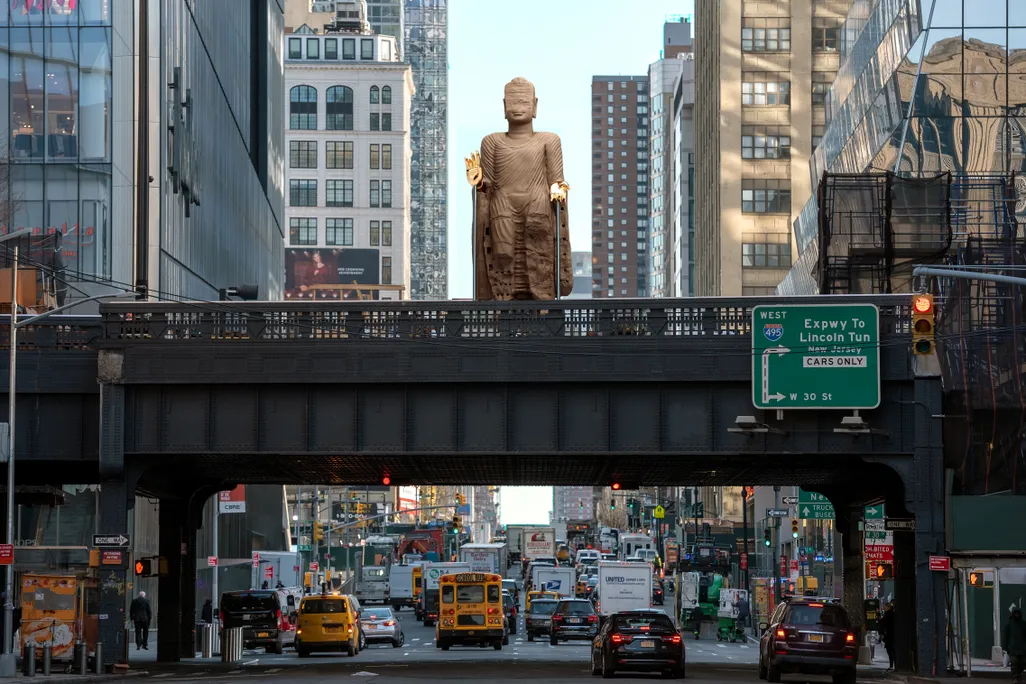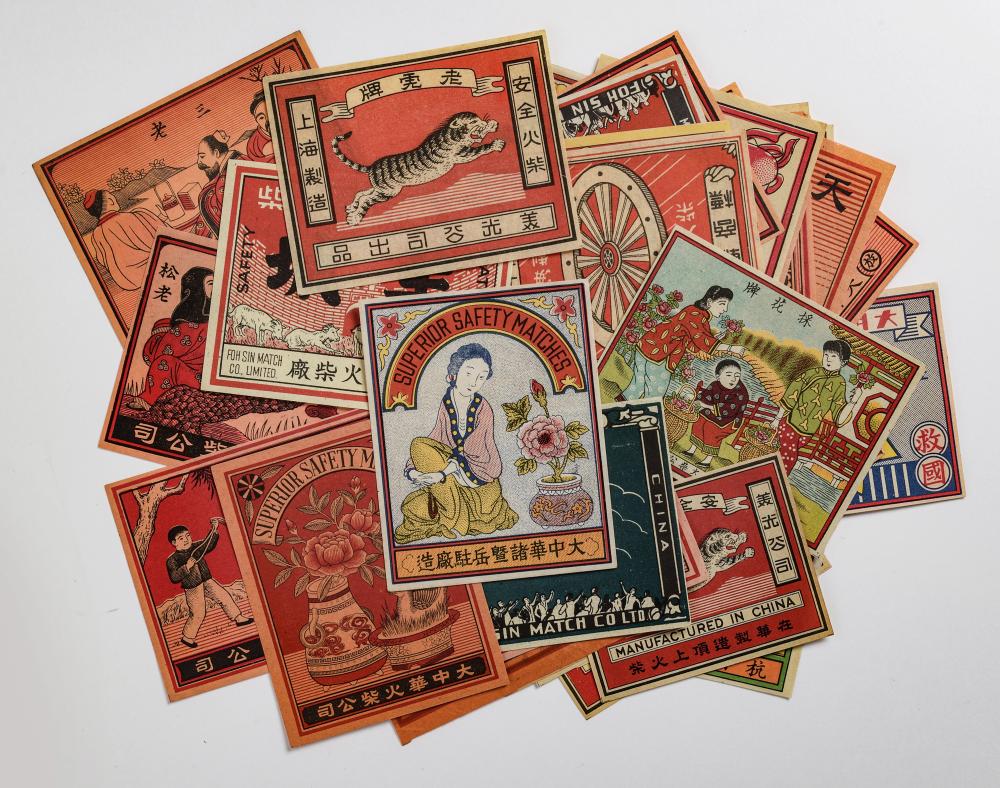A tropical island off the coast of Malaysia would seem an odd place for a monument to epidemiology in China. But at the base of Penang Hill, just around the corner from a major mosque and a KFC, is a road named after Dr. Wu Lien-teh, who in the winter of 1911-1912 helped stop an epidemic from spreading throughout China and possibly into the wider world.
Dr. Wu was born in Penang, he was the first medical student of Chinese descent to study at the University of Cambridge and was later nominated for a Nobel Prize in Medicine. In 1911, he traveled to the northeastern city of Harbin to investigate a deadly disease that had already killed hundreds of people along the rail lines of Manchuria. Dr. Wu diagnosed the disease as an outbreak of pneumonic plague and he recommended the Chinese government shut down the rail lines ahead of the Chinese New Year when many workers in Manchuria would head home to other parts of China. His actions prevented a local disaster from turning into a national catastrophe.
But it wasn’t easy. When Dr. Wu arrived in Harbin, his ideas were ignored, even mocked, by fellow physicians from Japan, Russia, and France, all of whom had been sent to discover the nature of the mystery ailment killing people along the railways of Manchuria.
In the 19th and 20th centuries, imperialist powers granted themselves exceptional rights to conquer and subjugate other parts of the world because they believed their civilizations were superior to those of their colonial subjects. This superiority was based on several assumptions, but one of the most common was science and health.
Related:
 Coronavirus Stirs Rumors and Racism Towards Chinese Eating Habits and HealthOn social media, ignorant rhetoric about food and health is spreading faster than the virus itselfArticle Feb 03, 2020
Coronavirus Stirs Rumors and Racism Towards Chinese Eating Habits and HealthOn social media, ignorant rhetoric about food and health is spreading faster than the virus itselfArticle Feb 03, 2020
Ruth Rogaski’s excellent Hygienic Modernity: Meaning of Health and Disease in Treaty Port China examines the connection between disease, hygiene, science, and imperialism. Rogaski argues that China (and other parts of the world) were often described as full of noxious smells and “miasmas”, poor hygiene, inadequate sanitation, and superstitious medical practices.
The French naval officer Louis Marie-Julien Viaud (1850-1923) was part of the international expeditionary force sent against the Boxers in 1900. Under his pen name of Pierre Loti, he wrote in 1902: “The uniformly dirty populace, dressed in blue cotton, with squinting evil eyes, swarm and crawl about, eagerly searching and raising a perfect cloud of microbes and dust.” The disgust and loathing were sadly typical in writings about China from the period.
Such criticism became part of a general discourse that reinforced the implicit backwardness of the people who lived there. This discourse was often later internalized by colonized elites.
The British and Americans built hospitals and medical colleges in China. The French installed a new sewer system in Hanoi (although not without some unintended consequences). Many young aspiring Chinese doctors in the late-19th and early-20th century (including a young Zhou Shuren, better known by his pen name Lu Xun) trained in Japan.
In fact, as Rogaski notes in her book, the modern Chinese term for hygiene (卫生 wèishēng) was an older term, deriving in part from Daoist medical practice for “preserving life.” As was the case for many terms used in modern Chinese today, weisheng was appropriated by Japanese translators looking to render the foreign word “hygiene” into Japanese/Chinese characters.
Related:
 These Illustrations Highlight the Humor of Overly-Literal Chinese TranslationsShanghai-based writer and artist Frankie Huang‘s illustration series Putong Animals is a unique and beautiful celebration of languageArticle Oct 26, 2019
These Illustrations Highlight the Humor of Overly-Literal Chinese TranslationsShanghai-based writer and artist Frankie Huang‘s illustration series Putong Animals is a unique and beautiful celebration of languageArticle Oct 26, 2019
But at the same time, this privileging of science over other forms of civilization also reinforced imperialist projects around the world. It was why Dr. Wu encountered resistance when he arrived in Manchuria that fateful winter. The railways of Manchuria were an important prize for countries seeking to extend their power in Northeast Asia, and science and medicine were fields of battle. Dr. Wu was in a situation as much about empire as epidemiology.
Dr. Wu’s diagnosis of Pneumonic plague was initially ignored by the other doctors, including a French physician who refused to wear a mask while treating patients. The death of the French physician, after he became infected by a patient a few weeks later, helped confirm Dr. Wu’s diagnosis.
It’s less polite these days — unless, apparently, you’re President of the United States — to describe another country as dirty, uncivilized or backward. Instead, we use coded language like “lacking development” and “unhygienic.” But while the terms may change, the discourse remains very similar. Articles with titles that directly recall imperialist tropes of the past are especially counterproductive.

This Wall Street Journal headline sparked outrage in China, even leading to a petition about it on the White House’s official website
Think also about the fixation on the dietary habits of people in China. Should the trade in wild game and wild animal markets be prohibited? Absolutely. Does this mean every Chinese person hangs out with friends on a Friday night eating bat wing hot pot out of the skulls of a dead pangolin? No.
Should the trade in wild game and wild animal markets be prohibited? Absolutely. Does this mean every Chinese person hangs out with friends on a Friday night eating bat wing hot pot out of the skulls of a dead pangolin? No.
It gets tricky because China is also an imperial power. The Chinese Communist Party uses the discourse of science to justify its involvement in the “less developed” parts of the country. Discussion of China’s ethnic nationalities inevitably involves terms like “backward,” “superstitious,” or “in need of development,” and policies in those areas are ripped — almost page for page — from the playbooks of the colonial powers who bullied China a century ago.
Related:
 “I’m Not a Virus”: Chinese-Italian Man Fights Coronavirus-Related Racism with Free HugsA group called the Italian-Chinese Youth Union has made a powerful video commenting on coronavirus-related discriminationArticle Feb 05, 2020
“I’m Not a Virus”: Chinese-Italian Man Fights Coronavirus-Related Racism with Free HugsA group called the Italian-Chinese Youth Union has made a powerful video commenting on coronavirus-related discriminationArticle Feb 05, 2020
This legacy of the Century of Humiliation, and perhaps a lingering memory of the Mandate of Heaven, also exacerbates the Party’s inability to share information. This is one reason epidemics spread so rapidly in China. The Party, with members embedded in a 20th-century political culture in China that measured progress, in part, through science, medicine, hygiene, and the regulation of the human body, sees epidemics as failures of development. A viral pathology begets an equally insidious social and political pathology.
The Chinese government failed in its efforts to contain the outbreak when it began. But the response by the rest of the world, too little sympathy, and too much reversion to old tropes of “dirty backward China” is not helping the situation. It’s not making sick people better, and it appears to be doing little to stop the virus from spreading globally.


















